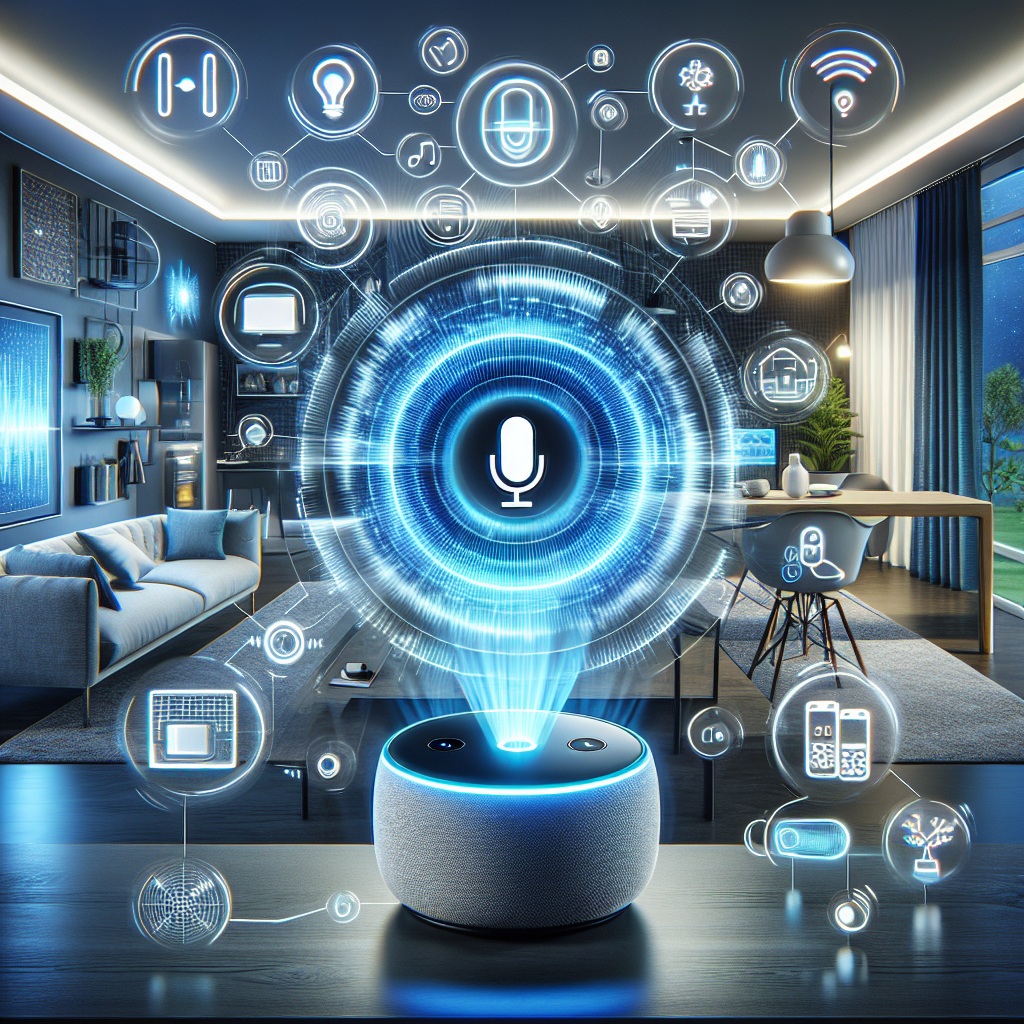Voice assistants have become an increasingly popular feature in smart homes, with millions of households around the world using devices like Amazon Alexa, Google Assistant, and Apple Siri to control their smart devices, get information, and perform various tasks with just their voice. As technology continues to advance, the future of voice assistants looks promising, with the development of conversational AI pushing the boundaries of what these devices can do.
Conversational AI is a form of artificial intelligence that allows voice assistants to have more natural and human-like conversations with users. This technology enables voice assistants to understand context, emotions, and nuances in language, making interactions more seamless and intuitive. In the world of smart homes, conversational AI is revolutionizing the way people interact with their devices, enabling them to have more personalized and engaging experiences.
One of the key benefits of conversational AI in smart homes is the ability to create a more personalized and customized experience for users. Voice assistants can learn from each interaction, adapting to the user’s preferences, habits, and behaviors over time. This level of personalization allows voice assistants to provide more relevant and useful information, make better recommendations, and anticipate the user’s needs before they even ask.
Another advantage of conversational AI in smart homes is the ability to perform more complex tasks and interactions. Voice assistants with conversational AI can handle multi-step commands, understand follow-up questions, and carry on more natural and fluid conversations with users. This makes interactions with voice assistants feel more like talking to a real person, rather than a machine.
In addition to personalization and complexity, conversational AI also enables voice assistants to better understand and respond to emotions. By analyzing tone of voice, cadence, and other vocal cues, voice assistants can detect emotions like frustration, excitement, or sadness and adjust their responses accordingly. This emotional intelligence adds a new dimension to interactions with voice assistants, making them more empathetic and human-like.
The future of voice assistants in smart homes is also likely to see advancements in natural language processing (NLP) and machine learning. These technologies will enable voice assistants to understand and generate more natural and human-like speech, as well as learn from user interactions to improve their performance over time. As NLP and machine learning continue to evolve, voice assistants will become even more intelligent, intuitive, and capable of understanding and responding to a wide range of commands and queries.
One of the most exciting developments in the future of voice assistants is the integration of multiple voice assistants into a single ecosystem. For example, users may soon be able to interact with Amazon Alexa, Google Assistant, and Apple Siri on a single device, seamlessly switching between them based on their preferences or the task at hand. This integration will provide users with more choices and flexibility in how they interact with their devices, as well as enable voice assistants to collaborate and work together to provide more comprehensive and personalized experiences.
As voice assistants become more sophisticated and integrated, the possibilities for their use in smart homes are virtually limitless. From controlling smart devices and appliances to managing schedules, providing entertainment, and even offering emotional support, voice assistants have the potential to transform the way we live, work, and interact with the world around us.
FAQs:
Q: How does conversational AI differ from traditional voice assistants?
A: Traditional voice assistants are limited in their ability to understand context, emotions, and nuances in language, whereas conversational AI enables voice assistants to have more natural and human-like conversations with users. Conversational AI also allows voice assistants to learn from each interaction, adapt to user preferences, and provide more personalized and engaging experiences.
Q: What are some of the benefits of conversational AI in smart homes?
A: Conversational AI in smart homes enables voice assistants to provide more personalized and customized experiences for users, handle more complex tasks and interactions, and understand and respond to emotions. This technology also allows voice assistants to learn from user interactions, improve their performance over time, and collaborate with other voice assistants in a single ecosystem.
Q: How is conversational AI likely to evolve in the future?
A: In the future, conversational AI is likely to see advancements in natural language processing (NLP) and machine learning, enabling voice assistants to understand and generate more natural and human-like speech. As NLP and machine learning continue to evolve, voice assistants will become even more intelligent, intuitive, and capable of understanding and responding to a wide range of commands and queries.
Q: What are some potential uses of voice assistants in smart homes?
A: Voice assistants in smart homes can be used to control smart devices and appliances, manage schedules, provide entertainment, offer emotional support, and much more. As voice assistants become more sophisticated and integrated, the possibilities for their use in smart homes are virtually limitless.

